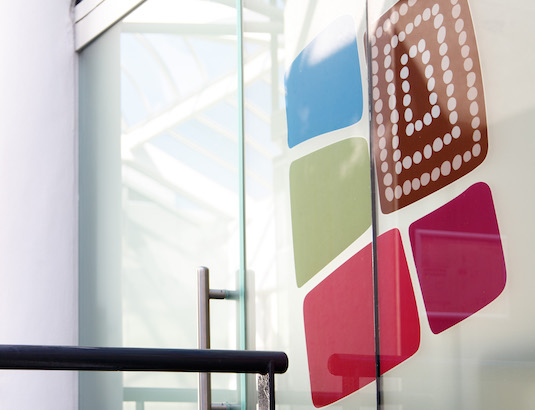Career Pathways Report – Working for our people’: what helps build a stronger Aboriginal and Torres Strait Islander health workforce?

The Aboriginal and Torres Strait Islander health workforce has unique skills that make its members powerful advocates and agents of change in the Australian health system to improve outcomes for Aboriginal and Torres Strait Islander people, new research shows.
The Career Pathways Project Report, commissioned by the Lowitja Institute and led by the Aboriginal Medical Services Alliance Northern Territory (AMSANT) and UNSW Sydney, has found that Aboriginal and Torres Strait Islander health staff bring passion, commitment, and an intuitive understanding of cultural safety to their work and work environments.
However the benefits they can deliver are too often stymied by a lack of career pathways that restrict many to low paid roles, often despite higher qualifications, and by structural and systemic barriers in the health system, including racism, work overload and burnout, and lack of managerial support.
Lowitja Institute CEO Dr Janine Mohamed said Aboriginal and Torres Strait Islander people are more likely to use services where Aboriginal and Torres Strait Islander health staff and professionals work.
“Growing and supporting the Aboriginal and Torres Strait Islander health workforce is therefore critical to achieving health justice for our people and, also importantly, for our health workers to be able to flourish in their chosen careers,” Dr Mohamed said.
“Aboriginal and Torres Strait Islander people are already overloaded and overworked because we’re seen as the ones who have to ‘fix the Aboriginal problem’,” she said.
“But it is really the responsibility of all in the health system to dismantle the barriers that Aboriginal and Torres Strait Islander people face and celebrate the culture and contribution of our health workforce.”
AMSANT CEO John Paterson said the report is timely given that the Aboriginal health workforce continues to be a critical factor to succeeding in our goals with the Closing the Gap initiative.
“It is evident that a strong Aboriginal and Torres Strait Islander health workforce makes a big difference in ensuring the delivery of a culturally safe and effective health service that must be fully recognised by the broader health sector,” Mr Paterson said.
‘We are working for our people’: Growing and strengthening the Aboriginal and Torres Strait Islander health workforce, Career Pathways Project Report, is an Aboriginal led national project undertaken to address the significant shortfall of Aboriginal and Torres Strait Islander health professionals.
Of 35 health occupations reviewed by the project, only six had an Aboriginal and Torres Strait Islander workforce proportion that reflects the proportion of Aboriginal and Torres Strait Islander people in community. In addition, the report found that any growth of the workforce has largely been in low status and low paying jobs with shorter salary scale structures and poor pathways into other roles, including clinical and management roles.
Released on Sunday 9 August to mark the United Nations’ International Day of the World’s Indigenous Peoples, the Career Pathways Project Report involved a unique collaboration of partners across universities and community-controlled and government health services.
It also provides unique insights from the first ever national survey of Aboriginal and Torres Strait Islander health staff across all professions, roles and jurisdictions in Australia.
Nearly 400 health professionals have given voice to their experience and expertise, highlighting strengths in cultural knowledge, community connections, clinical practices, communication and distinct ways of knowing and addressing community needs.
The report is also informed by case study data collected at 16 health services including community-controlled and government and 70 one-on-one interviews across Australia.
“There’s an additional layer of skills and knowledge particularly when you’re an Aboriginal person, you know, that you can’t, you don’t go to uni for, it’s your lived experience. It’s what you feel, what you know…just that cultural knowledge. (Worker, government)
“I’ve been in health for a long, long time and I’ve studied hard to get to where I’ve been because I was given the opportunity.” (Worker, government)
“My very first opportunity – a traineeship – it made a difference to my life.” (Worker, ACCHO)
‘That strength and that leadership at a community level … and cultural leaders. Not only cultural but community leaders, on our board to keep our staff safe … and our organisation safe.’ (Manager, ACCHO)
The report found that Aboriginal and Torres Strait Islander health staff embark on a lifelong journey of learning to address the issues they see facing their families and broader communities, even if this involves significant challenges, changes in career goals, isolation, or working in a health system that it not always flexible or responsive to community needs.
However, many reported significant barriers, with one in three (33%) rating their career development opportunities as ‘poor’ or ‘very poor’, due to limited opportunities (36%) and not feeling supported by their manager (21%). Less than half (45%) reported being made aware of training opportunities and around a third (32%) that they were supported by regular career development planning and reviews.
The report also offers ways forward, providing 44 recommendations about how employers and policy makers can best support and facilitate the career development of Aboriginal and Torres Strait Islander people working in health.
Dr Sally Nathan from UNSW said: “This project was a true partnership from the very beginning with academics learning from Aboriginal and Torres Strait Islander people and leaders working in health, who in turn built their research skills working alongside researchers.”
The major partners for the two year project were AMSANT, UNSW Sydney, Bila Muuji Aboriginal Corporation Health Service (Bila Muuji), Western Sydney University (WSU), and Human Capital Alliance (HCA).

